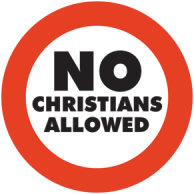We live in a progressive, post-modern society. Technology continues to thrive and our scientists are constantly discovering things previous generations had no idea about. Information is at our fingertips and we have more knowledge about the world we live in than ever before. In spite of our progression, society remains fractured by our perceived differences. Communities have broken down over the years and our neighbours have become strangers. It no longer takes a village to raise a child but one man and one women (or two men and two women as the case may be) who will make decisions concerning the child that best fits their ideals. None of us want to seem as though we are overstepping the invisible boundary between our own personal moral code and the actions of others, so even if we disagree with the actions of others, we keep our mouths firmly shut, telling ourselves that they are free to live out their ‘truth’.
Truth, in our society, is no longer a fixed concept; your truth and my truth can be different yet exist simultaneously. It doesn’t really matter what you or I do as long as we can sleep at night and live with ourselves during the day. The opinions of others has ceased to have the same impact it once had, as those who speak out against our actions are often deemed as ‘haters’ or lacking in understanding.
The idea that truth is relative cannot exist within the Christian paradigm simply because the concept of truth is the cornerstone of our faith.
And you will know the truth, and the truth will set you free.
John 8:32
Jesus told him, “I am the way, the truth, and the life. No one can come to the Father except through me.
John 14:6
Our truth doesn’t change, it doesn’t adapt in an ever-evolving world; it is a fixed concept. We believe there is truth and everything else is a lie. Not only do we believe this, we want others to believe also so we share our faith with those around us in the hopes that they will see the truth and experience liberation as a result.
Now, this attitude, in an era where every lifestyle is tolerated, accepted and celebrated, causes many problems. We are painted as bigots, as intolerant and rigid. We are accused of being narrow-minded and ignorant. And don’t get me wrong, there are hundreds of thousands of Christians who are all of these things, but not necessarily because of their faith. Most of the Christians that I know (I said ‘most’) are loving, caring individuals who continue to wrestle with their faith, accepting that there are things that they will never understand but holding onto Jesus all the same. They are merely imperfect people who believe in a perfect God, who get things wrong and are going through their process.
I had a conversation with a friend of mine last week. I am her first Christian friend and she is my first Atheist friend so our conversations are always very interesting. One of the questions I asked her was why when I say that I am a Christian, people become hostile and defensive. My faith raises alarm bells for others because they expect me to be prejudiced and judgmental. If I express my personal opinions concerning various social issues, I am judged or even mocked. But why is that? Why am I no longer allowed to hold fast to what I consider to be true? I am allowed to be spiritual, to believe in some vague higher power or even attribute the world’s happenings to the workings of the ‘universe’, but if I say that believe that Jesus Christ is Lord, I am immediately met with hostility.
Perhaps it’s because Christianity certifies a standard that is in conflict with the lifestyles of many. Perhaps it’s because religion has been used as a weapon, as a tool that has sought to oppress people instead of liberating them. I’m not sure but I am interested. What is your truth? Where does Christianity fit in? Does it fit in at all? If you are a Christian, do you believe that there is only one truth? How does this affect the way that you engage with the world? And when people ask you your opinion about social issues such as abortion, gay marriage and the likes, in environments outside of your church, what is your response?



